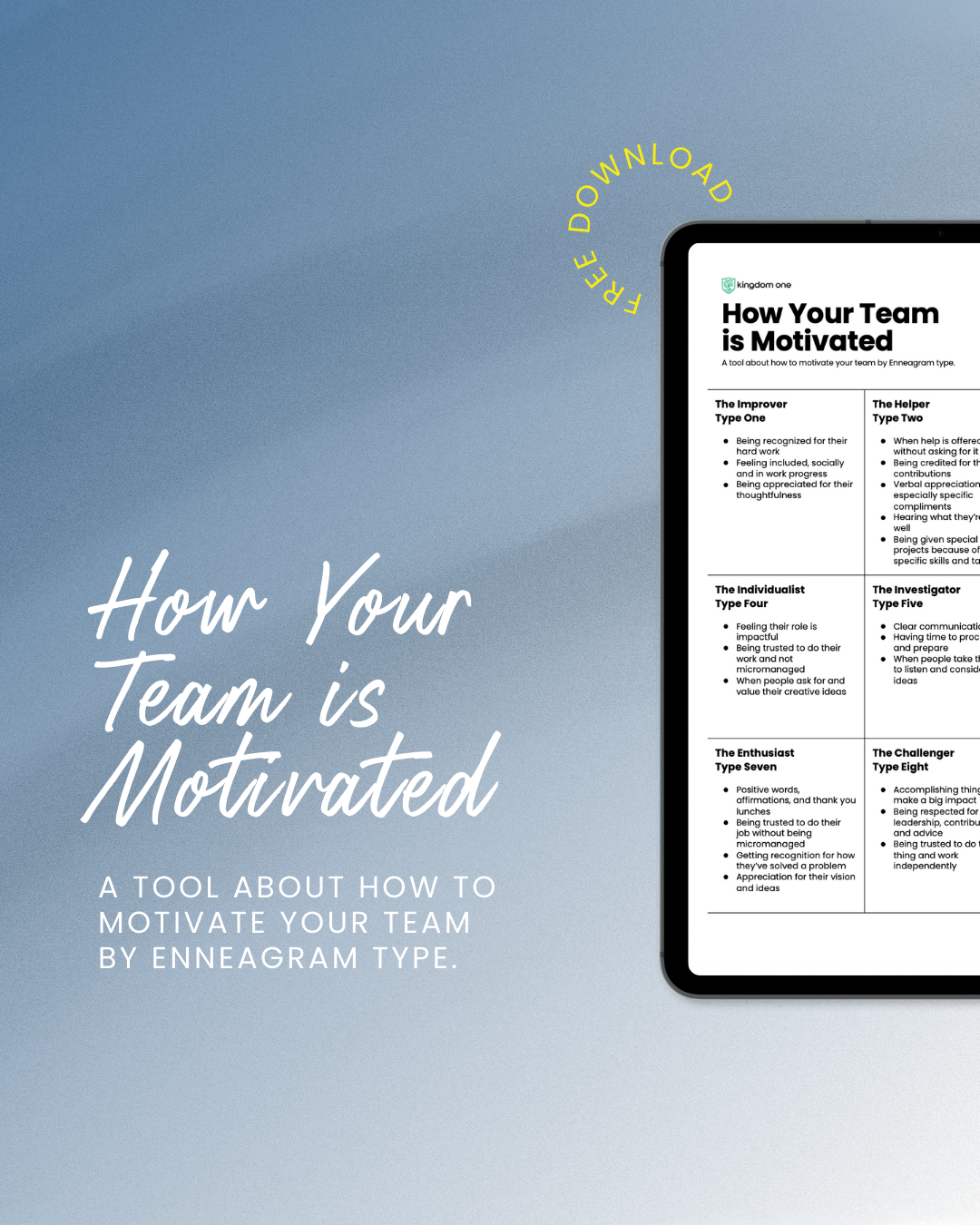1 min read
When a Ministry Leader Stopped Leading Everyone the Same Way
 Ashley Santoro
:
Sep 1, 2025 8:00:00 AM
Ashley Santoro
:
Sep 1, 2025 8:00:00 AM

The staff meetings felt flat. Some people disengaged quietly, others pushed harder, but no one seemed energized. A ministry leader finally asked, “What do they actually need from me?”
That question led to a shift that changed how the team functioned and how they felt.
One Size Doesn't Fit All
This leader cared deeply about their team and was doing what they thought was right: showing up consistently, checking in often, and applying the same motivational tactics across the board. But it wasn’t working.
Some team members felt micromanaged. Others felt invisible. Morale was low, and small tensions kept surfacing.
People didn’t feel seen.
And as much as this leader tried to rally the group, they were getting diminishing returns. The team was tired. So was the leader.
Leading with Insight, Not Assumption
Then something shifted.
After a staff development session, the leader was introduced to the Enneagram—not just as a personality tool, but as a lens for understanding motivation.
They began studying what drives each type, what drains them, and what language builds them up. With the help of a type-specific strategy guide, they started making small changes in how they encouraged, challenged, and coached their team.
They stopped assuming everyone needed loud public praise or intense goals. They learned that:
- A Type 2 thrives when their help is appreciated—but not taken for granted.
- A Type 5 needs space to process and clarity before being asked to contribute.
- A Type 9 may have valuable input—but needs an invitation to speak.
These insights didn’t require a massive overhaul. Just awareness, humility, and a commitment to lead with intention.
Slowly but surely, things began to shift. The meetings felt lighter. Team members began leaning in again. People who once seemed disconnected were now contributing. High-performers who felt pressure began to relax into sustainable rhythms. Trust grew. And the leader? They felt like they could finally lead without guessing.
Want to Try It With Your Team?
You don’t need a degree in psychology to motivate your team well. You just need to start seeing them for who they are.

Download our free guide: "How to Motivate Your Team by Enneagram Type"—with type-specific tips and real-world strategies.
Every person on your team is wired differently—and that’s a gift.
Taking time to understand what makes them tick isn’t just smart leadership. It’s faithful stewardship.
So what would change if your team felt truly seen?

